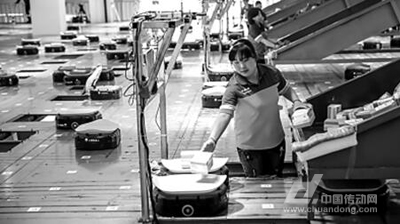Artificial Intelligence (AI) has emerged as a transformative force in the world of technology, often regarded as one of the most influential innovations since the 1970s. Over decades, AI has evolved from theoretical concepts to practical applications, enabling smart devices to move beyond understanding the physical world and into personalized, real-world scenarios. In recent years, leveraging AI to boost productivity and develop new products and services has become essential for economic growth and industrial transformation. The integration of AI with the real economy is driving innovation across various sectors. As the backbone of national strength, the real economy benefits significantly from the deep fusion of AI technologies. From healthcare to retail, finance to education, AI is reshaping traditional practices. For example, in the medical field, AI enhances diagnostic accuracy through computer vision and natural language processing. By analyzing medical images and interpreting patient descriptions, AI systems can detect diseases more efficiently, improving both the speed and quality of care. This not only boosts service efficiency but also supports the future development of the healthcare industry. AI is also playing a crucial role in industrial restructuring. As traditional industries seek modernization, AI offers a powerful tool for transformation. The Chinese government's "New Generation Artificial Intelligence Development Plan" highlights the importance of developing intelligent technologies such as software, robots, and IoT. These innovations are helping key industries like manufacturing, agriculture, and logistics to adopt smarter, more efficient methods. By replacing or collaborating with human labor, AI-driven machinery increases productivity and redefines how value is created and distributed across the supply chain. Smart manufacturing is another area where AI is making a significant impact. As a high-performance sector, it holds strategic importance for enhancing a country’s manufacturing capabilities. The development of AI directly fuels the growth of smart manufacturing, leading to more advanced, intelligent, and service-oriented production processes. According to the 2017 Smart Manufacturing Innovation Base Development Plan, China aims to build a complete smart manufacturing system by 2020, with the smart equipment manufacturing industry expected to generate over 3 trillion yuan in revenue annually. This growth reflects the immense potential of AI in shaping the future of manufacturing. In 2016, the "Internet+ Artificial Intelligence Three-Year Action Implementation Plan" outlined a roadmap for AI development, aiming to establish a robust industry, service, and standardization system by 2018. It also targeted breakthroughs in core technologies, the rise of global AI leaders, and the creation of a 100 billion yuan AI market. Looking ahead, AI will continue to expand into areas such as defense, agriculture, finance, and public safety. Its integration with different industries will drive data-driven decision-making, foster human-machine collaboration, and promote cross-sector innovation, ultimately building a shared smart economy. As AI becomes more embedded in daily life, we are witnessing the emergence of smart homes, smart cities, and even smart countries. These developments represent the next stage of societal evolution, marking another major milestone in human progress—following the industrial, electric, and information ages. AI is not just changing technology; it is transforming the way we live, work, and interact with the world around us. Tinned Copper Clad Copper TCCC Corrosion-Resistant Copper-Clad Tinned Wire,Copper-Clad Copper Tinned Wire Production,Copper-Clad Copper Tinned Wire Processing,Copper-Clad Tinned Wire changzhou yuzisenhan electronic co.,ltd , https://www.ccs-yzsh.com